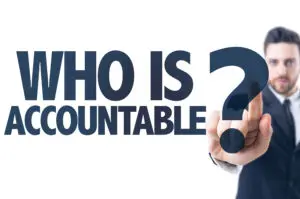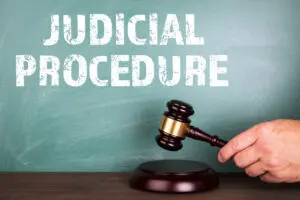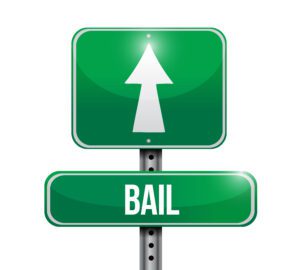Video – Bail Agent Christian Esparza Of Acme Bail Bonds Explains How Acme Bail Bonds Can Accept Cosigners In Another State
Video Transcript
Ray Hrdlicka – Host – BailBonds.Media
Changing the scenario a little bit here, the family member or friend who is the person who is in jail…is in jail in another state. And so, they call a friend or a family member in California here, who calls you. Are you still able to help them?
Christian Esparza – Acme Bail Bonds – California
Yeah, we help people that are…have out-of-state signers all the time. So, your signer can be pretty much anywhere in the world now with the computers and how we can send an e-mail for them to sign. So,…happens a lot, with college students… and their parents are out of state and they heard that their son or daughter in jail so they call us. We do the same…same thing with them, we send them an e-mail and send an agent to post the bond at the local jail.
AI Generated Content:
Video – Bail Agent Christian Esparza Of Acme Bail Bonds Explains How Acme Bail Bonds Can Accept Cosigners In Another State
In a revealing video interview, bail agent Christian Esparza of Acme Bail Bonds addresses a crucial question that many individuals face when trying to secure a bail bond for someone in a different state: Can Acme Bail Bonds accept cosigners from another state? This topic is of paramount importance in the bail bond industry, as it directly impacts the accessibility of bail services for those who may not have local connections or resources.
Christian Esparza, drawing from his extensive experience in the field, provides valuable insights into Acme Bail Bonds’ policies and practices regarding out-of-state cosigners. His explanation sheds light on the complexities of the bail process and the considerations that bail bond companies must weigh when deciding to accept cosigners who reside in a different state from where the defendant is being held.
One of the primary factors that Esparza emphasizes is that Acme Bail Bonds does indeed have the capability to accept cosigners from other states. This approach aligns with the company’s commitment to providing accessible bail services to a wide range of clients, regardless of their geographical location. However, he notes that there are specific requirements and considerations that come into play when dealing with out-of-state cosigners.
The bail bond process for cases involving out-of-state cosigners often involves a more thorough evaluation. Esparza explains that Acme Bail Bonds considers various factors when assessing whether to accept a cosigner from another state. These factors may include:
- The cosigner’s financial stability and credit history
- The strength of the cosigner’s ties to the defendant
- The cosigner’s ability to ensure the defendant’s appearance in court
- The legal requirements and regulations of both the defendant’s state and the cosigner’s state
This comprehensive approach allows Acme Bail Bonds to make informed decisions on a case-by-case basis, ensuring that they can provide bail services while also managing the risks associated with out-of-state cosigners.
Esparza emphasizes that the goal of Acme Bail Bonds is to balance the need for secure bail arrangements with the desire to help defendants and their families in challenging situations. This balance is particularly crucial when dealing with out-of-state cosigners, as there may be additional complexities in verifying information and ensuring compliance with bail conditions.
The bail bond industry has faced increasing scrutiny in recent years, with critics arguing that the system can be difficult to navigate, especially for those who don’t have local connections. In light of these concerns, many bail bond companies, including Acme Bail Bonds, have been adapting their practices to be more inclusive and accommodating to a diverse range of clients, including those with out-of-state support networks.
Esparza points out that accepting out-of-state cosigners requires additional due diligence on the part of the bail bond company. This may involve more extensive background checks, verification of employment and assets, and a thorough assessment of the cosigner’s ability to fulfill their obligations from a distance. Despite these additional steps, Acme Bail Bonds recognizes the importance of providing this service to meet the needs of their clients.
The bail reform movement has gained traction in many states, leading to changes in how bail is handled and increasing the importance of bail bond services that can work across state lines. Esparza notes that Acme Bail Bonds stays informed about these reforms and adapts its practices accordingly to remain compliant with evolving legal standards while still providing valuable services to clients with out-of-state support systems.
One of the key services that Acme Bail Bonds provides to clients with out-of-state cosigners is guidance through the bail process. Esparza explains that these cases often involve additional paperwork and verification steps. Acme Bail Bonds works to educate both the defendant and the out-of-state cosigner about their rights, responsibilities, and the specific requirements they must meet to secure and maintain the bail bond.
The company also recognizes the importance of technology in facilitating bail bonds with out-of-state cosigners. Esparza highlights that Acme Bail Bonds utilizes secure online platforms for document signing, video conferencing for interviews and verifications, and electronic payment systems to make the process as smooth as possible for cosigners who cannot be physically present.
Another aspect that Esparza addresses is the role of collateral in bail bonds involving out-of-state cosigners. In some cases, Acme Bail Bonds may require additional collateral to secure the bond when working with a cosigner from another state. This could include property, vehicles, or other valuable assets that can be legally tied to the bail agreement.
Esparza also discusses the importance of clear communication in these situations. He emphasizes that Acme Bail Bonds strives to provide transparent information about their policies and procedures to all clients, including those with out-of-state cosigners. This transparency helps build trust and ensures that all parties understand their obligations and the potential consequences of failing to meet them.
The video interview touches on the topic of interstate compact agreements, which can come into play when dealing with bail situations that cross state lines. Esparza explains that these agreements between states can affect how bail bonds are handled and enforced when cosigners are located in a different state from the defendant.
Esparza also addresses the financial aspects of bail bonds with out-of-state cosigners. While the standard fee for a bail bond is typically a percentage of the total bail amount, he notes that there may be additional costs associated with verifying out-of-state cosigners and managing these more complex cases. However, he emphasizes that Acme Bail Bonds works to keep these costs reasonable and transparent.
The role of legal representation in cases involving out-of-state cosigners is another topic Esparza covers. He explains how having a skilled defense attorney can be particularly beneficial in these situations, as they can help navigate the complexities of interstate legal issues and ensure that the rights of both the defendant and the cosigner are protected.
Esparza also discusses the concept of risk assessment in relation to out-of-state cosigners. He explains that Acme Bail Bonds uses sophisticated tools and methods to evaluate the risk associated with each bail bond, taking into account factors such as the cosigner’s distance from the defendant, their financial stability, and their ability to exert influence over the defendant’s compliance with bail conditions.
The interview touches on the importance of ongoing communication between the bail bond company, the defendant, and the out-of-state cosigner. Esparza emphasizes that regular check-ins and updates are crucial to ensuring that all parties remain informed and that any potential issues are addressed promptly.
Esparza also addresses the issue of bail revocation in cases with out-of-state cosigners. He explains that if a defendant violates their bail conditions, the process of revoking bail and potentially apprehending the defendant can be more complicated when the cosigner is in another state. Acme Bail Bonds has protocols in place to handle these situations effectively.
The video interview delves into the topic of interstate extradition, which can become relevant if a defendant flees to another state. Esparza explains how Acme Bail Bonds works with law enforcement agencies across state lines to resolve these situations and fulfill their obligations to the court.
Esparza also discusses the concept of bail bond transfer between states. In some cases, it may be possible to transfer a bail bond to another jurisdiction if a defendant needs to move to another state while awaiting trial. He explains the complexities involved in this process and how Acme Bail Bonds can facilitate such transfers when necessary and legally permissible.
The role of GPS monitoring and other technological solutions in managing bail bonds with out-of-state cosigners is another topic Esparza covers. He explains how these tools can provide additional assurance to both the bail bond company and the court that the defendant will comply with their bail conditions, even when their support system is geographically distant.
Esparza also addresses the importance of cultural competence when dealing with out-of-state cosigners. He explains that Acme Bail Bonds recognizes the diverse backgrounds of their clients and works to provide culturally sensitive services, including language support and understanding of different cultural norms that may impact the bail bond process.
The video interview touches on the topic of bail bond insurance, which can play a role in managing the risks associated with out-of-state cosigners. Esparza explains how insurance policies can provide an additional layer of protection for both the bail bond company and the cosigner in these more complex cases.
Esparza also discusses the concept of reciprocity agreements between bail bond companies in different states. He explains how Acme Bail Bonds has established relationships with reputable bail bond agencies in other states, allowing them to provide more comprehensive services to clients with out-of-state connections.
The interview covers the topic of bail bond renewal for cases involving out-of-state cosigners. Esparza explains that in some situations, bail bonds may need to be renewed or extended, and he outlines how Acme Bail Bonds handles this process when working with cosigners who are not local to the jurisdiction where the case is being heard.
Esparza also addresses the issue of confidentiality in bail bond transactions involving out-of-state cosigners. He emphasizes Acme Bail Bonds’ commitment to protecting the privacy of all parties involved, including implementing secure systems for handling sensitive information across state lines.
The video interview touches on the topic of bail bond education for out-of-state cosigners. Esparza explains that Acme Bail Bonds provides comprehensive information and resources to help cosigners understand their roles and responsibilities, regardless of their location.
Esparza also discusses the concept of virtual check-ins for defendants with out-of-state cosigners. He explains how technology allows Acme Bail Bonds to maintain regular contact with both the defendant and the cosigner, ensuring compliance with bail conditions even when parties are geographically separated.
The interview covers the topic of bail bond recovery in cases involving out-of-state cosigners. Esparza explains the procedures Acme Bail Bonds follows if a defendant fails to appear in court, including how they work with recovery agents across state lines when necessary.
Esparza also addresses the importance of financial counseling for out-of-state cosigners. He explains that Acme Bail Bonds offers guidance to help cosigners understand the financial implications of their commitment, including potential long-term effects on their credit and assets.
The video interview concludes with Esparza reiterating Acme Bail Bonds’ commitment to providing accessible and reliable bail bond services, including to those with out-of-state support networks. He emphasizes that while these cases may involve additional complexities, the company’s goal is to help defendants secure release while ensuring the integrity of the judicial process.
In summary, Christian Esparza’s insights provide a comprehensive look at how Acme Bail Bonds approaches cases involving out-of-state cosigners. By leveraging technology, maintaining clear communication, and adapting to the unique challenges posed by interstate bail situations, the company strives to offer fair and accessible bail bond services while addressing the complexities of modern mobility and diverse support networks.
More videos in Bail Bond Answers
Debug Messages
- No associated attorney found or ID missing.












































